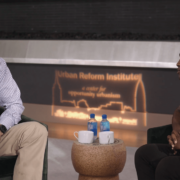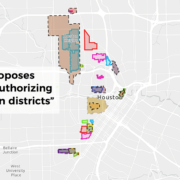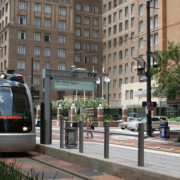Grid Resilience, Repurposing River Oaks Theater, TX Migration and More
Our first lead item this week is an in-depth follow-up from Jim Crump on targeted solutions to improve the electric grid in Texas. Highly recommended if you’re interested in the nuances of improving grid reliability without extraordinary costs. Speaking of which, it’s been verified that we don’t necessarily need to spend billions on winterization, we just need to treat gas pumps like critical infrastructure during blackouts! “This simple paperwork blunder left Texans cold during the deadly freeze.”
One more lead item so the blog lives up to its name this week 😉 Assuming the River Oaks Theater won’t be taken over by a live theater group (really the best option), my suggested best realistic option in a streaming world: since Weingarten wants another high-rise there, preserve and repurpose it as a cool public lobby and coffee bar, marquee and all. Sure it’s sad to lose the actual movie theater, but does that have any chance when you can stream pretty much any independent film at home any time?
Moving on to lots of backlogged items to catch up on this week:
- Dallas insanity: $1.7 billion for 2.4 miles of mostly subway. That’s $708 million per mile! Glad Houston METRO is being a lot more pragmatic and prudent with their resources than this. Hat tip to Oscar.
- Several think tanks published their Metropolitan Blueprint for Texas.
- Antiplanner on Reinventing the Jetliner (i.e. high speed rail) with some compelling opening paragraphs:
“Suppose I told you that I have reinvented the jet airliners that carried Americans more than 750 billion passenger miles–about 10 percent of all passenger travel–in 2019. My reinvented jet will go less than half as fast as existing jets. It will cost six times as much to operate, per passenger mile, as existing jets. Unlike existing jets, which can go anywhere there is air, the reinvented jet will only be able to go on a limited number of fixed routes.
This wondrous invention will become a reality if the federal government spends a mere one, two, or possibly three or four trillion dollars. Does that sound like a good deal? No? Yet that is exactly what high-speed rail advocates are proposing. Some proposals, such as the Green New Deal, even call for almost completely replacing low-cost, fast jet airliners with high-cost, relatively slow trains.”
Now on an opportunity cost basis, just imagine if those trillions went directly into carbon reduction instead of white elephant high-speed rail lines??
- This stat is incredible and will radically change New York (archive link):
“Less than 50 percent of people who worked in Manhattan offices in 2019 will be working from those offices in the coming years, according to a recent survey by the Partnership for New York City.”
- Texas Monthly’s article on the lack of diversity in Austin has a great excerpt on Houston:
“One thing I always admired about Houston is how confidently immigrants claim public space for themselves—how working families picnic in Hermann Park or elated quinceañeras roam the Galleria with their brightly attired entourages and pose for portraits before the Waterwall.”
- Which relates to this good news for Houston: “Among his clients, more than half now cite diversity as a top criterion when choosing new locations”
- The last part of my post last week analyzing the pros and cons of Houston in a remote work world got picked up by Houston Innovationmap!
- I keep reading how Houston is losing its affordability and median home prices have gone up 34% since 2010, but isn’t that just 3% per year (compounded), slightly above inflation?
- Joel Kotkin: The death of the American city – Rising crime and a pandemic-inspired exodus are powering urban decay. Great quote:
“Cities do not thrive by having more cutting-edge coffee shops, trendy restaurants and edgy boutiques; they need safe streets, decent schools and jobs for middle and working-class families.”
Finally, I’d like to end with a well-done in-depth video by CNBC on why so many businesses and billionaires are moving to Texas. Worth the watch. “Embrace the freedom!
This piece first appeared at Houston Strategies.
Tory Gattis is a Founding Senior Fellow with the Center for Opportunity Urbanism and co-authored the original study with noted urbanist Joel Kotkin and others, creating a city philosophy around upward social mobility for all citizens as an alternative to the popular smart growth, new urbanism, and creative class movements. He is also an editor of the Houston Strategies blog.
Photo credit: Terry Hammonds via Flickr under CC 2.0 License.

 Terry Hammonds, CC 2.0 License
Terry Hammonds, CC 2.0 License



 Gage Skidmore, used under CC 2.0 License
Gage Skidmore, used under CC 2.0 License

